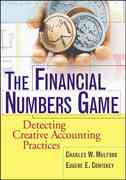Question
Excerpt from: Saufi & Mustafa (2017) in an arficle enfified isiamic Accounting and Business Practices: A Conceptual Framework In the Westem economic perspective, any person
Excerpt from: Saufi & Mustafa (2017) in an arficle enfified "isiamic Accounting and Business Practices: A Conceptual Framework" In the Westem economic perspective, any person has uncondifional and absolute rights over wealth and is allowed fo use it as he or she pleases. The individual's main aim is fo maximize this wealth, maximizafion of profit and minimization of loss. It is contrasted Islamic economics pracfices where individuals do nof have absolute right over their wealth as mentioned in the Quran. Al creations and wealth are belongs fo Alah. Although they have been granted ownership over wealth, fhis s as frustees [amanah] only, and they must use it only according fo the instructions given by Alah. They cannot wastefully consume their wealth, and they must give o ofhers in ferms of social confribution or zokat because others also have right fo another person's wealth They are also accountable fo Allah and acting as vicegerent (khalfah).
(a) Current conventional accounting framework lacks emphasis on accountabiliy. Elaborate on the fundamental diferences between conventional accounting and lslamic accounting rom the perspective of accountabillty and stewardship.
(b) Paying zakat (that necessitates having accurate and just financial statements which represent accurately and truly financial position of the entity). Therefore, why the "cost" principles are undesirable from the Islkamic accounting perspective in relation to obligation of paying zakat?
Step by Step Solution
There are 3 Steps involved in it
Step: 1

Get Instant Access to Expert-Tailored Solutions
See step-by-step solutions with expert insights and AI powered tools for academic success
Step: 2

Step: 3

Ace Your Homework with AI
Get the answers you need in no time with our AI-driven, step-by-step assistance
Get Started


